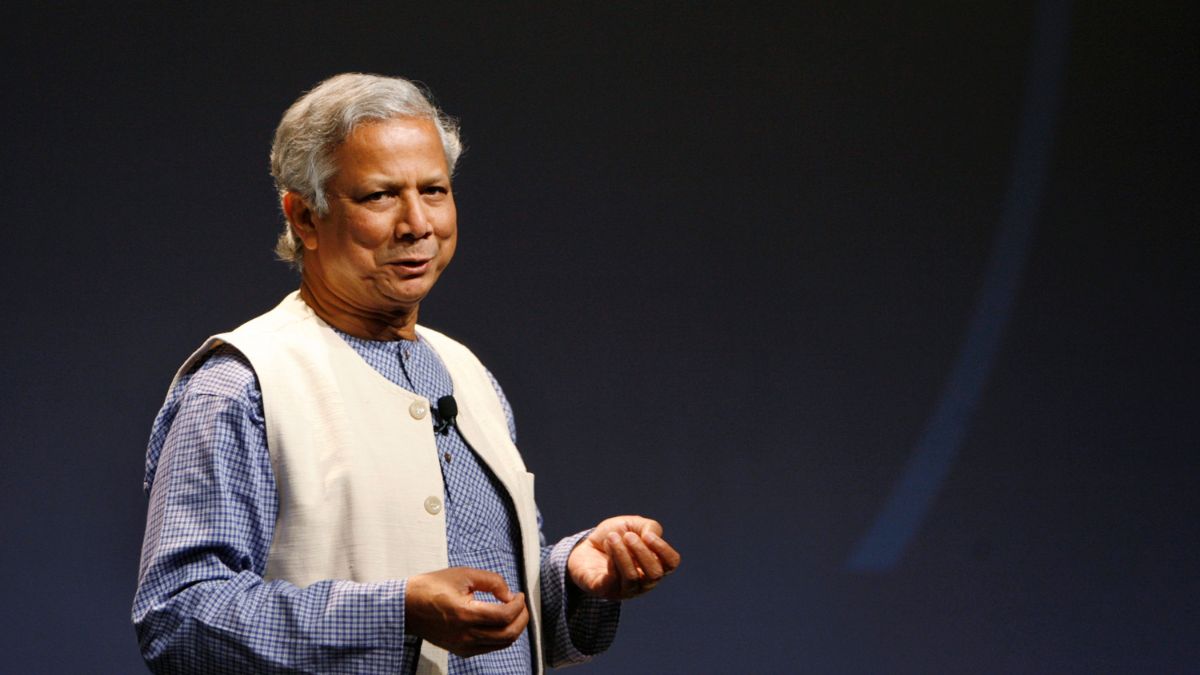It has been nearly a year since Bangladesh’s longest-serving prime minister, Sheikh Hasina, was ousted on August 5 last year, following weeks of student-led protests .
The violent protests resulted in the death of 1,400 people.
The dramatic end to her 15-year rule came as she fled her opulent Dhaka residence by helicopter, while jubilant crowds looted her home. Her departure marked the collapse of her regime and left her Awami League in disarray.
Hasina now faces charges of crimes against humanity at Bangladesh’s International Criminal Tribunal, where she is being tried in absentia. Ignoring calls to return, she has issued defiant statements from afar, vowing to “avenge the deaths” of her loyalists. Meanwhile, Bangladeshi authorities are pursuing her family members and allies through Interpol, targeting countries like the United Kingdom, Canada, and the United Arab Emirates.
A hope
In the wake of Hasina’s fall, Bangladesh buzzed with hope for a fresh start.
A coalition of student leaders, civil society groups, and opposition parties filled the power vacuum, appointing Nobel laureate Muhammad Yunus as interim head of state.
At 85, Yunus was seen as a unifying figure, credible internationally and a calming presence domestically. He promised to rebuild the nation, declaring in his first address that Bangladesh would become “a new republic born on the ashes of repression.”
Yunus faced a monumental challenge: dismantling a state apparatus that had enabled widespread corruption, rigged elections, and unchecked executive power.
His administration has made some strides, though.
Impact Shorts
More ShortsThe interim government claims to have repealed oppressive laws, loosened media restrictions, and fostered an environment for open dissent. The government officials also claim they are working to reform the country’s electoral system.
Yunus has also sought to recover billions of dollars siphoned abroad during Hasina’s tenure and clean up a banking sector plundered by tycoons.
On the global stage, Yunus has worked to reposition Bangladesh strategically.
During a March 2025 visit to Beijing, he secured $2.1 billion in pledges from China, while also seeking relief from US tariffs and stronger ties with India.
A year on: The picture looks grim
However, nearly a year later, the early euphoria has faded, and Yunus’s ambitious agenda is faltering.
Economic challenges loom large.
Inflation remains above 9 per cent, and youth unemployment is rampant.
The threat of new US tariffs endangers Bangladesh’s export-driven economy, particularly its garment industry.
Within the government, there are allegations that reform efforts are being undermined by entrenched bureaucrats loyal to the Hasina regime.
“They know the system better than anyone,” a senior aide to Yunus told This Week in Asia, speaking anonymously. “They’re just waiting us out.” These loyalists are allegedly stalling procurement, withholding critical data, and delaying proposals to hinder progress.
Political fragmentation adds to the woes.
Some allies are wary of constitutional changes that could diminish their future influence, while powerful business families are resisting efforts to strengthen the central bank and enforce anti-money-laundering measures. “We had everything, a solid plan and a clear vision,” the aide said. “At every step, we’re up against the ghost of the government we thought we’d buried.”
Even among the student leaders who sparked the uprising, divisions have emerged.
Some have joined the interim government, embracing the slow grind of reform, while others feel betrayed.
“We didn’t fight just to change faces – we fought to change the system,” Umama Fatema, a 27-year-old former protest coordinator, was quoted as saying by South China Morning Post.
On the streets, disillusionment is growing. Shaheena Begum, a garment worker from Savar who joined the protests after witnessing students being killed, voiced her frustration: “I thought we were starting something new. But prices are still high, factory owners still cheat us, and the powerful are bickering again. Did we really win?”
)